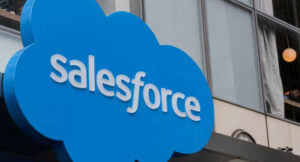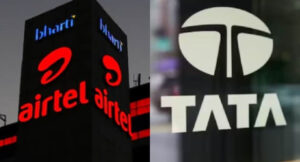Folie à Deux opened in October, Warner Bros. Discovery Inc. Chief Executive Officer David Zaslav summoned the co-leads of his movie studio to company headquarters in New York. The sequel to the 2019 smash hit Joker had been a critical and commercial disaster, grossing just $208 million, about one-fifth what the original took in—despite costing nearly four times as much to make.
In a closed-door meeting, Zaslav railed against the performance of the film, which studio heads Michael De Luca and Pamela Abdy had supervised from start to finish after joining Warner Bros. in 2022. Zaslav also decried the mounting costs of the studio’s upcoming releases, according to people familiar with the matter who weren’t authorized to speak publicly. A spokesperson for Warner Bros. disputed this characterization, calling the meeting “a straightforward Joker 2 postmortem and a constructive conversation on the slate.”
De Luca and Abdy—or Mike and Pam, as they’re known in Hollywood—are about to release a 2025 lineup that leans on more expensive films with uncertain box-office prospects, starting with Mickey 17, from award-winning filmmaker Bong Joon-ho, on March 7. Box Office Pro forecasts the movie, a science fiction comedy that cost more than $100 million to produce, will deliver an opening weekend of no more than $20 million in the US and Canada, suggesting it will have a hard time making enough to earn a profit. De Luca’s and Abdy’s contracts, which pay them more than $10 million a year each including bonuses, are due to expire in 2026, according to several people at the company as well as people who conduct major business with the film group.
The movie studio’s struggles have been a drag on earnings at parent company Warner Bros. Discovery, which has lost more than half its market value since Discovery and WarnerMedia merged in a $43 billion deal in 2022. On a quarterly conference call in November, Zaslav conceded that “even in an industry of hits and misses, we must acknowledge that our studio’s business must deliver more consistency.” Profit at the division that includes the motion picture group is expected to be down by about a third when the company reports its annual results on Feb. 27, according to analyst estimates compiled by Bloomberg.
“Clearly the focus needs to be on the returns and how the film studio is going to make more money going forward,” says Robert Fishman, an analyst at MoffettNathanson, a media and entertainment investment research firm. Shareholders are eager to see better performance from the motion picture group, which will help stabilize earnings and pay down debt the company took on to merge and create Warner Bros. Discovery, Fishman says.
When Zaslav hired De Luca and Abdy to turn around Warner Bros., formerly one of the most stable and profitable studios in Hollywood, the division was lagging behind Walt Disney Co., Comcast Corp.’s Universal and other rivals. Its recent movies based on DC Comics had struggled to compete with the more successful titles from Disney’s Marvel Studios. Warner Bros. had also just lost marquee filmmaker Christopher Nolan, the director of Oppenheimer, who effectively ended a 20-year relationship with the studio in 2021 when it decided to simultaneously release its pictures in theaters and on its nascent streaming app.
By bringing in De Luca and Abdy, who most recently ran Metro-Goldwyn-Mayer, the James Bond studio, Zaslav hoped to leverage their excellent relationships with talent to make blockbusters. True to form, the pair has signed production and development deals with megastars including Tom Cruise, Timothée Chalamet and Margot Robbie, as well as horror director M. Night Shyamalan. In addition to deep relationships with talent, the co-executives brought a history of award-show wins to the studio: Abdy previously worked at the independent producer New Regency when it won Oscars for 12 Years a Slave and The Revenant, while De Luca’s producer work has been nominated for best picture three times, for The Social Network, Moneyball and Captain Phillips.
Movie buffs—including Zaslav, a 65-year-old former cable television executive enamored with Hollywood who says Moneyball is one of his favorite pictures—love award-winning dramas by auteur directors. But today’s most successful studios overwhelmingly rely on films based on existing intellectual property that can produce sequels, consumer products, spinoff TV series and video games. The 10 highest-grossing movies released domestically in 2024 were all in some way tied to previous films or popular brands. Greta Gerwig’s Barbie, green-lit years before De Luca and Abdy joined the studio, became the highest-grossing picture in Warner Bros. history after its release in 2023.
At Warner Bros., De Luca and Abdy have continued to put a lot of faith and money in acclaimed directors making original—if not obviously commercial—projects. Following a bidding war, they spent at least $130 million on One Battle After Another, a movie directed by Paul Thomas Anderson, known for Boogie Nights and Phantom Thread. They justified the budget because of the casting of Leonardo DiCaprio, forecasting it could gross $180 million in the US and Canada alone, according to people familiar with the matter. The director’s highest-grossing film to date, There Will Be Blood, was made on a budget of $25 million and generated global ticket sales of $76 million upon its release in 2007. To secure an original idea from Black Panther director Ryan Coogler, De Luca and Abdy committed $75 million and agreed to give the rights back to Coogler after 25 years. The budget has since eclipsed $90 million. On some projects, they agreed to pay directors an immediate share of cinema ticket sales before a film made a profit.
To be sure, many of Warner Bros.’ recent failures predated De Luca and Abdy. DC films such as The Flash and Aquaman and the Lost Kingdom were developed under their predecessor, Toby Emmerich. But the same goes for some of its biggest hits, which include Barbie and Dune: Part Two.
The spending decisions at the studio, described by some employees as indicating a lack of fiscal discipline, are especially poignant given the company has eliminated thousands of positions across multiple units since the merger. Morale at the film group is especially low after a third round of cuts. The company spokesperson denied that there have been any clashes and said that “Mike and Pam are aligned on budget priorities” with Zaslav and Chief Financial Officer Gunnar Wiedenfels. Since joining, De Luca and Abdy have lowered the average net production cost of Warner Bros. films from $168 million to $106 million, the company added.
The slate De Luca and Abdy developed over the next two years also includes some franchise fare, including films in the worlds of Final Destination, Mortal Kombat and The Cat in the Hat. “Like most major studios, WB is building a slate with tentpoles, IP-driven films and franchise sequels,” the company’s representative said. And several directors, screenwriters and cinephile executives in Hollywood are rooting for the studio’s original film bets to succeed, even if those same executives have been baffled by the movies’ costs.
Following the poor performance of the studio last year, two of the pair’s most senior deputies were pushed out in January: marketing chief Josh Goldstine and International Distribution President Andrew Cripps. (Goldstine’s contract had been renewed in 2024, while Cripps’ was up later this year.) Both were in the middle of planning for the release of the studio’s biggest titles in 2025, which include an adaptation of the video game Minecraft and F1, which Warner Bros. will distribute in cinemas for Apple Inc.
The producers of F1 originally chose Warner Bros. over rivals in part because of Goldstine’s success marketing Barbie. Goldstine and Cripps were also working on July’s Superman from DC Studios—a separate subsidiary that makes movies and TV shows based on comic-book characters and shares marketing and distribution staff with De Luca and Abdy’s film unit. James Gunn and Peter Safran, who lead DC, found out that Goldstine and Cripps would no longer be managing Superman’s release less than 24 hours before the firings, according to people familiar with the matter. When asked at a media event in February whether Goldstine’s ouster had been disruptive, Safran answered: “It was a decision that Mike and Pam felt was for the best.”
Meanwhile, De Luca and Abdy are racing to quell any perception that their spending has imperiled Warner Bros. Discovery’s earnings, in part by hiring a chief business officer for the first time. The pair brought in Ted Lim from Amazon MGM Studios, giving him a mandate to help “optimize internal processes” and make sure the group’s moves are aligned with Warner Bros. Discovery’s long-term corporate objectives, according to a memo De Luca and Abdy sent at the time of his hiring.
“Ted will collaborate with each division to ensure each Warner Bros. Pictures release reaches the widest possible audience beyond its theatrical window,” they wrote. Or, in other words, he will be doing his best to make sure enough people actually see the films De Luca and Abdy have backed. Bloomberg









